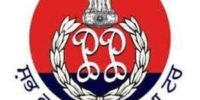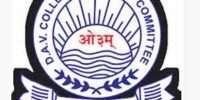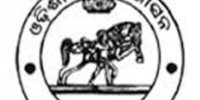KVS Librarian Syllabus 2023 | KV Sangathan Librarian Syllabus | KVS Librarian Concerned Subject Syllabus | KVS Librarian 2023 Syllabus | Kendriya Vidyalaya Sangathan Librarian Syllabus | KVS Librarian Exam Study Material PDF
KVS Librarian Syllabus 2023 | KVS Librarian Syllabus 2023 PDF Download @ www.kvsangathan.gov.in Syllabus: Candidates may greatly improve their knowledge and confidence by following this KVS Librarian Syllabus & Exam Pattern on a daily basis. Candidates who intend to take the test must be completely familiar with the exam pattern as well as all of the major themes from the KVS Librarian SSyllabus/ KVS Librarian Syllabus PDF 2023. If you apply for this KVS Librarian Recruitment, you may get the most recent KVS Syllabus and KVS Non-Teaching Exam Pattern on its official website at www.kvsangathan.gov.in Librarian syllabus. Interviewees can learn more about the syllabus and examination methodology by visiting this page. Check here for more Central Govt Jobs
Kendriya Vidyalaya Librarian Recruitment 2023 Syllabus
After knowing the Kendriya Vidyalaya Librarian Exam Syllabus PDF & Exam Pattern, the nominee can prepare according to the type of questions asked in the Kendriya Vidyalaya Librarian Exam. To elevate your preparation, you need to practice solving them frequently.
- It is important to have a thorough understanding of the KVS Librarian Syllabus 2023 in English/ KVS Syllabus 2023 in Hindi for the examination which can be perfectly understood with the help of the KVS Librarian Previous Year Question Papers.
- Solving this KVS Librarian’s previous year’s papers will help you to get an insight into the KVS exam.
- Solving Kendriya Vidyalaya Librarian’s previous year’s papers are also a great way of revising the entire syllabus in a time-efficient manner.
| Notification Details | |||||
|---|---|---|---|---|---|
| Recruiter | Kendriya Vidyalaya Sangathan (KVS) | ||||
| Designation | Librarian | ||||
| Vacancies/Post | Multiple | ||||
| Official Website | http://kvsangathan.gov.in | ||||
| Join our Telegram | |||||
KVS Librarian Exam Pattern 2023
Besides that, Exam Pattern for Kendriya Vidyalaya Non-Teaching posts is also important to secure the highest marks. So, aspirants have to follow some prescribed study materials. For better clarity on the upcoming Kendriya Vidyalaya exams, applicants should refer to the Exam pattern & Syllabus
| Papers | Subject | Total Questions | Total Marks |
|---|---|---|---|
| I | General English | 20 Questions | 20 Marks |
| General Hindi | 20 Questions | 20 Marks | |
| II | Current Affairs | 30 Questions | 30 Marks |
| Reasoning & Numerical Ability | 30 Questions | 30 Marks | |
| Concerned Subjects Questions | 100 Questions | 100 Marks | |
| Total | 200 Questions | 200 Marks | |
| Duration: 03 Hours | |||
KVS Librarian Syllabus PDF: Topic Wise
Knowing the Kendriya Vidyalaya Sangathan LibrarianA Syllabus also eases the preparation by defining the topics on which a candidate can be tested. Understanding the Kendriya Vidyalaya Sangathan exam pattern is of utmost importance to know the scheme of the examination and to prepare accordingly.
KVS Librarian Part I Syllabus 2023
- General English: Reading comprehension, word power, Grammar & usage
- General Hindi: शब्द सामर्थ्य, पठन कौशल, व्याकरण और प्रयुक्ति
KVS Librarian Part II Syllabus 2023
General Knowledge & Current Affairs:
Awards, Books & their authors, Sports, Everyday Science, Scientific Research, History- Ancient, Medieval & Modern, Geography, Current Affairs, Polity, Economics, Indian Art & Culture, etc.
Reasoning Ability:
Logical Reasoning, Verbal and non-verbal types, Puzzles and Seating Arrangement, analogies, similarities, Directions, Coding-decoding, Syllogism, Blood Relation, Mirror Image, Order and Ranking, and more.
Computer Literacy:
Basic Computer Terminology & Shortcuts, Abbreviations, Internet, General Concept of Social Networking, History and Evaluation of Computers, Web Technology, Operating Systems, Computer Memory or Storage Devices, Computer Software & Hardware, Generations and Types of Computers, etc.
KVS Librarian Concerned Subject Syllabus
Part I: Foundation of Library & Information Science
Unit 1: Library as a Social Institution
- Social & Historical foundations of the Library.
- Different types of libraries- Academic, Public, Special –have their distinguishing features and functions.
- Role of U.G.C. for development of Academic libraries.
- Role in the Library of formal and informal education. Shivaji University, Kolhapur
Unit 2: Normative Principles of Lib. & Inf. Science
- Five Laws of Library Science.
- Implications of five laws in Lib. & Inf. Science
- Development of Libraries with special reference to India, Baroda Public Library system
- Library Cooperation Resource Sharing and Library Networking
Unit 3: Laws relating to Libraries & Information
- Library legislation needs essential features.
- Library legislation in India.
- Maharashtra Public Library Act.
- Press and registration act & Delivery of Books act (Public Library).
- Copyright act, Intellectual Property rights.
Unit 4: Library and Information Profession
- Attribution of the profession
- Librarianship as a profession.
- Professional ethics.
- Professional associations & their role.
- National & International Library Associations- FID, IFLA, LA, ILA, ALA, IASLIC, etc.
- Professional education & research.
Unit 5: Promoters of Library & Information services
- National level promoters- RRRLF.
- International level promoters- UNESCO
Unit 6: Public relations & Extension activities
- Definition
- Facets and programs.
- Publicity & extension, Outreach activities.
- Library pathfinders (Guides)
- Factors affecting Library development, Literacy, publishing, Book Trade
Knowledge Organization, Information Processing & Retrieval
Unit 1: Universe of Knowledge
- Structure and attributes.
- Modes of formation of subjects.
- Different types of subjects.
- Universe of subjects as mapped in different schemes of classification.
Unit 2: Bibliographic description
- Catalog purpose, Structure, and types of physical forms including
OPAC filling Rules
- Overview of principles and practice in document description.
- Current trends in Standardization, description, and exchange.
- Standard codes of cataloguing.
- Normative Principles of cataloguing.
Unit 3: Methods of Knowledge Organization
- The general theory of Library Classification.
- Normative principles of classification and their application.
- Species of Library Classification.
- Standard Schemes of Classifications and their features, CC, DDC, UDC.
- Notation: Need, Functions, Characteristics
- Design and development of schemes of Library Classification, Standard sub-division Index.
- Trends in Library Classification.
Unit 4: Subject Classification
- Principles of Subject Classification.
- Subject heading lists and their feature.
Information Technology: Basic
Unit 1: Information Technology
- Definition, Need, Scope and Objectives.
Unit 2: Computer Basic (Hardware)
- Introduction to Computers
- Overview of Historical Development of Computers.
- Generations of Computers, Classification of Computers.
- Essential Components of the Computer system.
Unit 3: Computer Architecture-Organization of Computer
- Input and Output devices- Keyboard, Scanner, OCR, Printers, Monitor
Unit 4: Software
- Operating systems: Single & Multi-User Systems, Basic features of MS-DOS, MS Windows, Linux, UNIX, Windows NT, etc.
- Programming Languages: Concepts and Tools
- Algorithm & Flowcharting.
- Word Processors, Spread Sheet, etc.
Unit 5: DBMS Package
- Familiarity with DBASE, FOXPRO, CDS/ISIS, SOUL, MS Access (Basic features)
Unit 6: Computer application to library & Information work –
- Housekeeping operations
Unit 7: Communication Technology
- Communication Technology Basic Concepts
- Networking: Basic Concepts.
- Internet
Management of Libraries & Information Centres/Institutions
Unit 1: Management
- Concepts, definition and scope.
- Management styles and approaches.
- Management schools of thought.
- Functions and principles of Scientific Management.
Unit 2: Human Resource Management
- Organizational structure.
- The delegation, Communication, and Participation.
- Job Description and Analysis, Job evaluation.
- Inter-personal relation.
- Recruitment procedures.
- Motivation, Group Dynamics.
- Training and Development.
- Disciplines and Grievances.
- Performance Appraisal.
Unit 3: Financial Management
- Resources Mobilization
- Budgeting Techniques and Methods PPBS, Zero Based Budgeting etc.
- Budgetary Control.
- Cost-effectiveness and Cost-Benefit analysis.
- Outsourcing.
Unit 4: Reporting
- Types of reports, Annual report compilation, Contents, and style.
- Library Statistics etc.
Unit 5: System Analysis and Design
- Library as a system
- Project Management PERT/COM
- Decision Tables.
- Performance evaluation standards, MIS.
- Performance Measurement, reengineering, Time and Motion Study
- SWOT ( Strength Weakness Opportunities Threat)
- DFD (Data Flow Diagram)
Unit 6: Total Quality Management (TQM)
- Definition, Concept, Element
- Quality Audit, LIS-related standards.
- Technology Management.
Unit 7: Library House Keeping Operations.
- Different sections of the Library & Information Center and their functions.
- Collection Development and Management Policies Procedures.
- Book Ordering (Acquisition)
- Technical Processing.
- Serials Control, Circulation Control, Maintenance, etc.
- Stock Verification- Policies and Procedures.
- Evaluation and Weeding.
- Archiving-conservation-Preservation.
- Restoration including Print, Non-Print, and Electronic Materials.
Unit 8: Planning
- Concept, Definition, Need and Purpose, Types.
- Policies and Procedures, MBO
- Building and Space Management in Libraries and Information
- Centers.
- Library Building, Interior & Exterior, Furniture, Equipment, Standards & Types.
- Risk Management, Contingency Management.
- Planning of related Infrastructure, Library Standards.
Unit 9: Management of change.
- concept of change.
- changes in Procedures, Methods, Tools, and Techniques.
- Problems of Incorporating Change.
- Techniques of Managing Change.
Information Sources & Services
Unit 1: Reference and information sources.
- Documentary Sources of Information, Print, Non-Print including Electronic: Special features, Scope, types
- Nature, Characteristics, Utility, and evaluation of different types of Information sources: Physical formats, Authority, Content, Utility.
- Non-Documentary Information Sources.
- Reference Sources Categories, Primary, Secondary & Tertiary Information Sources.(Encyclopedia, Dictionary, Periodical, Thesis, Books, Yearbook, Patents, Trade literature, standards, Monographs, Reference Books, Year Books, Almanac, Atlas, Abstracting & Indexing periodicals, Bibliographies, Handbooks, etc.)
- Internet as a Source of Information.
Unit 2: Reference Service.
- Concept, Definition, Need, Scope and trends.
- Reference Interview and Search Techniques.
Unit 3: Information Services and Products
- Information Services and Products.
- Information services concepts, Definitions, Need and trends.
- Need, Techniques and Evaluation of Alerting services (CAS &SDI)
- Bibliographic, Referral, Document Delivery, and Translation Services.
Unit 4: Information System and their Services.
- Study of National, International and Commercial Information
- Systems and Services- Background, their Services and Products.
Library Users
Unit 1: Techniques of Library and Information Centres Survey.
- Proforma method.
- Interview method.
- Records analysis method.
Unit 2: Information users and their information Needs
- Categories of Information users.
- Information needs definitions and models.
- Information-seeking behavior.
Unit 3: User Education
- Goals and Objectives level, Techniques and Methods, Evaluation of Users Education Programmes.
User Studies
- Methods and techniques of User studies.
- Evaluation of User studies.
Unit 4: User Orientation Programmes
- Conventional and Modern Techniques: Study tours, Newsletters, Handbooks, Leaflets, Powerpoint Presentations, Websites, etc.
KVS Librarian (Non-Teaching) Syllabus PDF: Preparation Strategy
It is important to have a complete understanding of the exam system and the syllabus of the KV Sangathan Librarian Exam that can be accurately understood with the help we have provided in this dashboard. To avail of exclusive job offers, join our Telegram Channel page now!
- Before starting their preparation, candidates should review the exam syllabus.
- This will allow them to cover all the topics covered in the exam.
- Follow the detailed schedule and stick to it till the entire recruitment process is completed.
- Solve KV Sangathan Non-Teaching Previous Question Papers to better understand the exam pattern and types of questions asked.
- Develop a habit of reviewing all of your notes to ensure that you remember all the important details for a long time.
- To perform well in the exam, take practice tests to improve your question-solving speed and accuracy, as well as identify your strengths and weaknesses.
Method to Download: KVS Librarian 2023 Syllabus/ KVS Recruitment Librarian Syllabus
- Go to the official website
- On the home page, Go to the syllabus section and click the link to the Librarian KVS Syllabus 2023 PDF
- Upon clicking the link, your screen will display the Librarian latest syllabus
- The KVS Librarian Exam Syllabus 2023 can be downloaded as a PDF for further use by candidates
***BEST OFF LUCK***
We optimism you find this post about KVS Exam Previous Year Papers edifying and worthwhile. Competitors can now start studying for any competitive, Government, Bank, & Other exams using our Naukrimessenger.com. This website embraces Results, Answer Keys, Salary Structure, Books, Exam patterns, Syllabus, Merit List, Cut Off Marks, Answer Key, Latest Schemes, previous year question papers & Many more
| Important Details |
|---|




